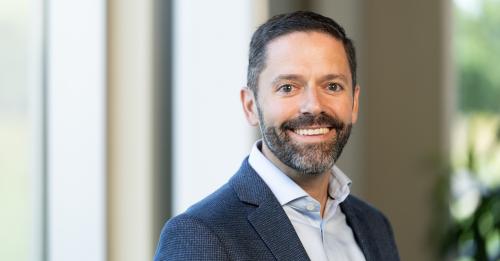As a lending freeze shuts down big leveraged buyouts, private equity is squeezing more from completed deals and looking increasingly to China and India
Private equity (PE) has entered a ‘purgatory’ age in which ‘we will have to atone for our sins a bit’. So stated industry heavyweight David Rubenstein, co-founder of the $73.9 bn Carlyle Group, at the Wharton School of Business’ 2008 Private Equity and Venture Capital Conference. PE partners have not always been open but, during the current credit overhang, they seem to be using the time to convince critics of the value of what they do, and sharing their sharp insights about the state of the markets.
With nobody there to syndicate debt thanks to the credit crisis, the coming months will likely see much smaller, non-leveraged deals, says Rubenstein, whose company has acquired Dunkin’ Donuts, Baskin-Robbins and Hertz, among others. ‘You’ll see more overseas activity where leverage is not as important, in places like India and China,’ he adds. He predicts new lending will resume as early as next fall, and then ‘you will see PE come back better than ever.’
Others are not so optimistic. Guy Hands, CEO of the London and Frankfurt-based PE firm Terra Firma – involved in the acquisitions of Odeon Cinemas, Waste Recycling Group and recording label EMI – predicts it will take PE a ‘long time’ to return to the strengths of the period June 2003 to June 2007.
‘The buyout market for large deals is more or less closed; banks have simply stopped lending,’ Hands says. Though it may resume at a lesser level, ‘there is $1.3 tn in leveraged buyout funding to be refinanced over the next three years. Lending will remain sparse. This is no blip.’
Talking terms
PE firms are having to renegotiate deals on tougher terms. Some deals are just being abandoned, and are subject to litigation and break-up fees. For example, Blackstone Group was unable to complete a $1.8 bn buyout of specialty finance company PHH, and paid $50 mn to walk away.
Over the long haul, Hands predicts the financial crisis will spill over into broader global economies, but will be at its worst in the US and the UK. ‘Recessions are inevitable, even if they are delayed by interest rate cuts, and the world political climate is looking more and more unstable,’ he says.
‘I believe the political climate will get worse rather than better over the next two to three years. The combination of declining global economic conditions is leading to greater political and social instability in the US and this could have an impact on private equity’s ability to invest.’
In their recent golden period, PE firms were returning profits of around 30 percent annually to investors, and are still under pressure to deploy capital, but ‘times are going to get tough,’ Hands points out. ‘It’s going to take around five to 10 times as long to make as much money. The quick-buck times have gone.’
The best way to approach the deteriorating situation is to ‘act like a lion,’ Hands tells his employees. ‘Wait, conserve energy, watch prey weaken – then strike. Do not expend energy in the chase.’ That could mean bad news for takeover targets at public companies.
To make the returns PE wants can mean dramatic changes in company business models. At EMI it means plans to cut up to 2,000 jobs. ‘Remember what Darwin actually said: not that the strongest will survive, but that those who can, adapt,’ says Hands, who became EMI chairman in the Terra Firma buyout.
Facing east
Not everyone sees doom and gloom, however. Richard Kramlich, co-founder of the venture capital firm New Enterprise Associates, says the role of venture capitalists is to ‘see around corners. I actually feel very confident in purgatory. In fact, when I’m not in purgatory, I’m a little worried. We think we have plenty of opportunities when times are bad.’
Kramlich sees lots of opportunities for expansion at companies that specialize in clean technology and healthcare preventative devices, among other industries. But, like Rubenstein, he sees the biggest opportunities in the booming markets of China and India. So taken is he with eastern opportunities that he and his wife recently moved to Shanghai. ‘The amount of energy, capital and progress, and the capital markets – it’s phenomenal,’ he says.
One of the biggest threats to the US economy, he argues, is not the credit crisis but the loss of market share to overseas capital markets. ‘There’s an industrial revolution going on in China,’ he says. ‘And we’re losing market share at precisely the wrong time.’
However, Kramlich is optimistic the SEC and lawmakers are coming to terms with the ‘unmanageable’ accounting requirements mandated by SOX and other regulations dampening US markets. A proposed move to accept accounting in IFRS by non-US companies is also a positive development, he says.
Internet services, telecoms infrastructure, mobile services and pharmaceuticals are all sectors Kramlich’s firm is looking to invest in overseas. ‘The Far East is beginning to roar,’ he says. ‘People forget that China was the dominant economy in the world for 14 of the last 17 centuries.’










